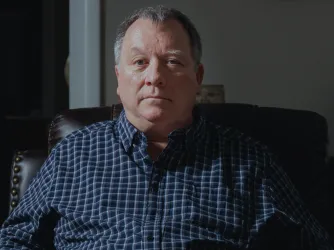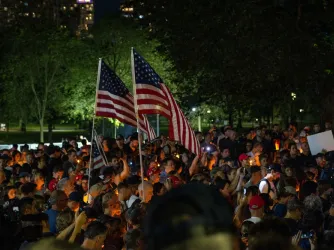Table of Contents
The First Amendment Is Not Optional
I am often surprised when we write to a public university to tell them that they are in direct violation of the Constitution, and their response is something along the lines of “thanks, we’ll take that under consideration.” People, the First Amendment is not optional! Public universities are legally bound to uphold the constitutional rights of their students and faculty.
As we discussed in a press release yesterday, we recently wrote to the University of Nevada at Reno (UNR) to inform them that their Public Forum policy—which restricts speech to only four areas of campus and requires a complex system of prior approval even for speech within those areas—is blatantly unconstitutional. In response, UNR Interim President Joe Crowley wrote that UNR was “reviewing and clarifying [its] understanding of time, place, and manner requirements,” and that he would circulate our letter to those involved in the review so they could benefit from our “thoughts and recommendations.”
Here’s the problem: we did not give UNR “thoughts and recommendations.” We told UNR that its Public Forum policy clearly violates students’ right to freedom of speech and is unconstitutional. Public universities often do not seem to realize that when they maintain policies that violate the First Amendment, they are breaking the law. Surely, if a university’s accountant said there were inconsistencies in the books that needed to be remedied, that university would fall all over itself to make sure it complied with the law. And yet, when confronted with evidence that they are breaking the law by depriving their students and faculty of constitutional rights, universities hem and haw and thank us for our “thoughts and recommendations.”
UNR is far from the only university to behave in this manner. For example, in June, 2005, FIRE wrote to Washington State University (WSU) after the administration morally and financially supported students who unconstitutionally exercised a “heckler’s veto” at a controversial student play. WSU President V. Lane Rawlins initially responded that he appreciated our “concern with free speech” and that he would “be sharing our letter with other members of [his] administration and the Office of the Attorney General for further consideration.” In a follow-up letter, FIRE had to remind President Rawlins that because “Washington State is a public university bound by the First Amendment of the U.S. Constitution,” he did not “need to confirm [WSU’s] obligation to respect the free speech rights of [its] students with the Office of the Attorney General.”
Repeat after me: the First Amendment is not optional. When public universities violate the free speech rights of their students, they are breaking the law. And FIRE will make sure they are held accountable.
Recent Articles
Get the latest free speech news and analysis from FIRE.

LAWSUIT: Ex-cop sues after spending 37 days in jail for sharing meme following Charlie Kirk murder
Larry Bushart was arrested for a social media post and held on a $2 million bond he could not afford. Now, he's fighting back.

‘Let them sue’: Iowa lawmakers scoffed at First Amendment in wake of Charlie Kirk shooting, records show
Iowa lawmakers urged ISU to punish speech about Charlie Kirk’s killing, shrugging off lawsuits and betting taxpayer money against the First Amendment.

City Club of Cleveland rejects illiberal calls to disinvite speaker
Historic City Club of Cleveland defies pressure to cancel a controversial speaker, reaffirming its century-old commitment to free speech and open debate.

Repression deepens in Hong Kong with Jimmy Lai’s guilty verdict and censorship over deadly Wang Fuk Court fire
Hong Kong jails Jimmy Lai, UK prosecutors seek to reverse a free speech victory, and a new U.S. border policy could export self-censorship worldwide.